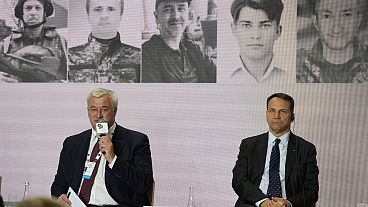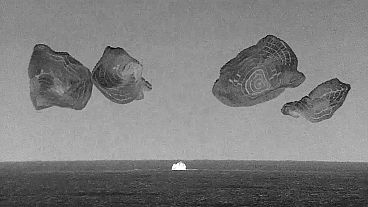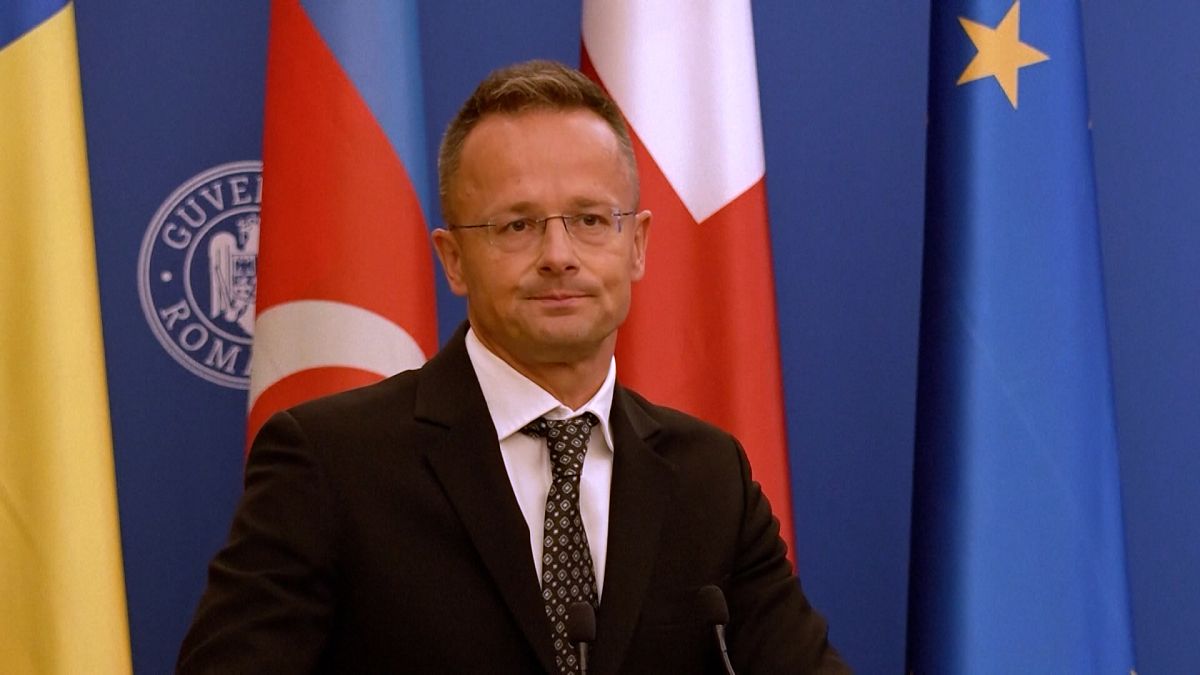For years, the government in Budapest has been criticised by many EU states for its perceived closeness to the Kremlin.
Hungary's top diplomat has hit back at critics of Budapest's recent decision to ease entry rules for Russian and Belarusian nationals, accusing critics in northern and western Europe of mounting a "fake news campaign" against his government.
Speaking at a press conference in Bucharest on Tuesday, Hungarian Foreign Affairs Minister Péter Szijjártó addressed the tension between Hungary and the rest of the EU over his country's perceived closeness to Russia.
“There’s a big hypocrisy here because whenever Hungary is against any position of most of the European countries, then we are usually called ‘Russian spies’ or ‘Trojan horses’ or ‘Kremlin propagandists,'" he said.
"When a Western European country vetoes a common European decision, this is a normal way of operation, you know. So this is very hypocritical.”
Szijjártó also directly addressed the National Cards that can be granted to Russians and Belarusians, saying a “very clear fake news campaign” is being carried out against Hungary by Baltic and Nordic countries who oppose the scheme.
“They are lying. The fact is that Hungary has absolutely not eased any kind of procedure, based on which third-country nationals can enter the territory of Hungary.”
The National Card immigration scheme allows foreign workers to stay in the country for at least two years and can pave the way to permanent residency.
Hungary had extended the scheme ― originally available to Serbian and Ukrainian nationals — to EU candidate countries Bosnia and Herzegovina, Montenegro, North Macedonia and Moldova.
However, when Belarus and Russia were added to the scheme, Nordic and Baltic countries expressed concern over the potential security risk it might pose for the rest of the EU.
Szijjártó made his comments as Romania, Hungary, Georgia and Azerbaijan launched a joint venture to install a power line under the Black Sea aimed at bringing more renewable energy into the EU from the eastern Caucasus.
The project was approved by leaders from each of the four countries in 2022 and gained momentum following Russia's full-scale invasion of Ukraine and the subsequent hike in energy prices.
Energy ministers say the project will help strengthen energy security and drive down prices for consumers.












